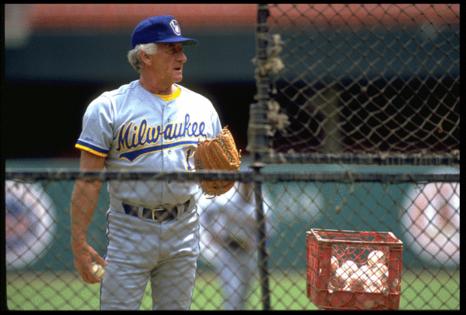Bob Uecker battled small cell lung cancer: 5 facts about the disease
Published in Health & Fitness
ATLANTA — Former Atlanta Braves player turned iconic broadcaster Bob Uecker, 90, has died. His hometown team announced that “Mr. Baseball” died Thursday morning in what has become “one of the most difficult days in Milwaukee Brewers history.” Though his cause of death was not revealed, according to his family, Uecker had been battling small cell lung cancer sine early 2023.
What is small cell lung cancer?
There are two main types of lung cancer: small cell and non-small cell. According to the American Cancer Society, non-small cell lung cancer is often categorized in one of two stages: limited or extensive.
“If your cancer is limited stage, you might get radiation or chemotherapy (chemo) treatments to try to cure the cancer,” the society reported. “An extensive-stage cancer will be treated, but is less likely to be cured. Be sure to ask your doctor about your cancer’s stage and what it might mean.”
How common is small cell lung cancer?
Lung cancer is the second most diagnosed cancer in the United States. The American Cancer Society estimated around 226,650 new cases of lung cancer in 2025. Small cell, like what Uecker faced, makes up around 15% of all lung cancer cases. Consequently, there will be around an estimated 33,997 new cases of small cell lung cancer this year.
“On a positive note, the number of new lung cancer cases continues to decrease, partly because more people are quitting smoking (or not starting),” the society reported. “The number of deaths from lung cancer continues to drop as well, due to fewer people smoking and advances in early detection and treatment.”
Smoker or non-smoker, the odds a man will be diagnosed with lung cancer are an average 1 in 17. For a woman, the odds are around 1 in 18.
How do you know if you have small cell lung cancer?
Common symptoms of small cell lung cancer are coughing, trouble breathing and chest pain. If your doctor is concerned you may have it, they may order imaging tests be done, like a chest X-ray or MRI scan.
“If you go to your doctor when you first notice symptoms, your cancer might be diagnosed at an earlier stage, when treatment is more likely to be effective,” according to the American Cancer Society. “Most of these symptoms are more likely to be caused by something other than lung cancer. Still, if you have any of these problems, it’s important to see your doctor right away so the cause can be found and treated, if needed.”
Coughing up blood, hoarseness, loss of appetite, weight loss, wheezing and reoccurring infections bronchitis or pneumonia infections are also common symptoms.
How deadly is small cell lung cancer?
Lung cancer is the leading cause of cancer deaths, accounting for roughly 20%. It kills more people than colon, breast, and prostate cancers combined. In 2025, the American Cancer Society anticipates around 124,730 deaths due to lung cancer.
The five-year relative survival rate of small cell lung cancer — the odds that a cancer patient will live another five years compared to a non-patient — ranges from 7% to 30% depending on the cancer’s stage (distant, regional, localized, etc.)
How is small cell lung cancer treated?
Radiation, chemotherapy, and immunotherapy are some of the most common treatments for small cell lung cancer, according to the American Cancer Society.
“Radiation uses high-energy rays (such as x-rays) to kill cancer cells,” the society reported. “In limited-stage small cell lung cancer, it’s most often used along with chemo to treat the tumor and lymph nodes in the chest. Or it could be used on the brain to try to keep the cancer from spreading there. Radiation can also be used to relieve symptoms, such as pain, bleeding, trouble swallowing, or other problems. It’s usually given in small doses every day for many weeks.”
Instead of using rays, chemotherapy uses drugs to do battle with the disease. It’s the most common treatment for small cell lung cancer and often takes several months to complete. The treatment comes with potentially significant side effects, including fatigue and hair loss.
Immunotherapy, meanwhile, uses the immune system itself to attack the cancer cells.
“An important part of the immune system is its ability to keep itself from attacking normal cells in the body,” the American Cancer Society said. “To do this, it uses ‘checkpoint’ proteins on immune cells, which act like switches that need to be turned on (or off) to start an immune response. Cancer cells sometimes use these checkpoints to avoid being attacked by the immune system. Drugs that target these checkpoints (called checkpoint inhibitors) can be used to treat some people with small cell lung cancer (SCLC).”
---------
©2025 The Atlanta Journal-Constitution. Visit at ajc.com. Distributed by Tribune Content Agency, LLC.










Comments